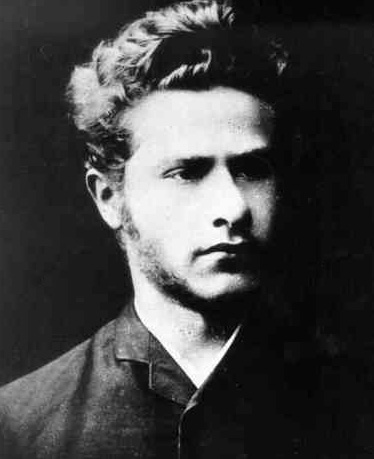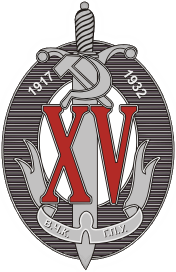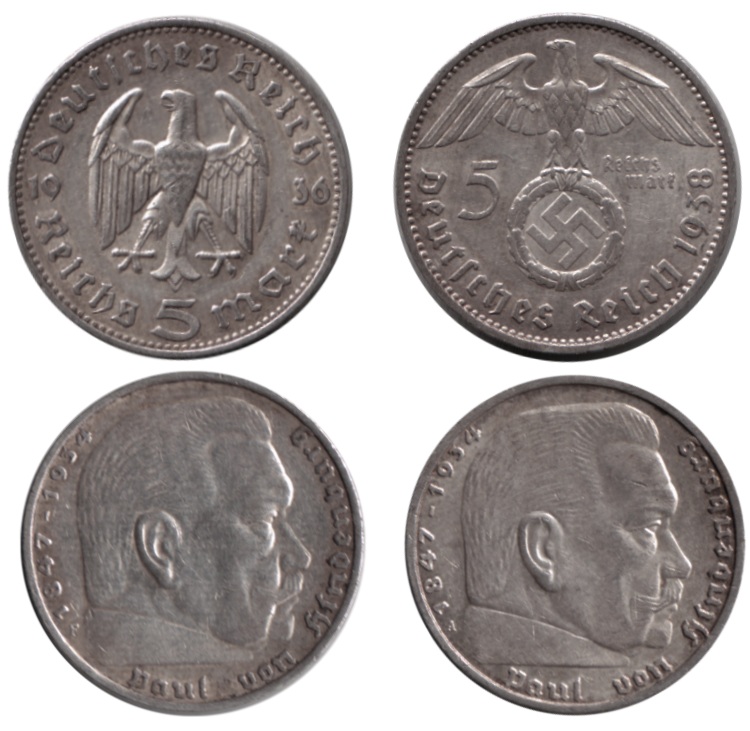|
Leo Flieg
Leo Flieg (5 November 1893 – 15 March 1939) was a German politician, and a founder member of the Communist Party of Germany, regarded by some as an "Éminence grise" to the national leadership. He served as a member of the Prussian regional parliament ("Provinziallandtag") between 1924 and 1933. In 1938 he was arrested in Moscow where he had lived for some years. He was executed in 1939. Life Leopold Flieg was born into a Jewish working-class family in Berlin. His mother and sister, along with a number of relatives, would be murdered in the Holocaust. On leaving school Flieg undertook a commercial apprenticeship at a bank, and he worked as a bank official till the outbreak of the war. In 1908, aged fifteen, he joined the Young Socialists. Three years later, still aged only eighteen, he joined the Social Democratic Party (''"Sozialdemokratische Partei Deutschlands"'' / SPD) itself. 1911 was also the year in which he became a member of the "Zentralverband der Handlungsgehil ... [...More Info...] [...Related Items...] OR: [Wikipedia] [Google] [Baidu] |
Communist Party Of Germany
The Communist Party of Germany (german: Kommunistische Partei Deutschlands, , KPD ) was a major political party in the Weimar Republic between 1918 and 1933, an underground resistance movement in Nazi Germany, and a minor party in West Germany in the postwar period until it was banned by the Federal Constitutional Court in 1956. Founded in the aftermath of the First World War by socialists who had opposed the war, the party joined the Spartacist uprising of January 1919, which sought to establish a soviet republic in Germany. After the defeat of the uprising, and the murder of KPD leaders Rosa Luxemburg, Karl Liebknecht and Leo Jogiches, the party temporarily steered a more moderate, parliamentarian course under the leadership of Paul Levi. During the Weimar Republic period, the KPD usually polled between 10 and 15 percent of the vote and was represented in the national and in state parliaments. Under the leadership of Ernst Thälmann from 1925 the party became thoroughly S ... [...More Info...] [...Related Items...] OR: [Wikipedia] [Google] [Baidu] |
Leo Jogiches
Leon "Leo" Jogiches (Russian: Лев "Лео" Йогихес; 17 July 1867 – 10 March 1919), also commonly known by the party name Jan Tyszka, was a Polish Marxist revolutionary and politician, active in Poland, Lithuania, and Germany. Jogiches was a founder of the political party known as the Social Democracy of the Kingdom of Poland and Lithuania (main forerunner of the Communist Party of Poland) in 1893 and a key figure in the underground Spartacus League in Germany, the predecessor of the Communist Party of Germany, during the years of World War I. For many years the personal companion and a close political ally of internationally famous revolutionary Rosa Luxemburg, Jogiches was assassinated in Berlin by right-wing paramilitary forces in March 1919 while investigating Luxemburg's murder some weeks before. Early life Leon Jogiches was born on 17 July 1867 to a wealthy ethnic History of the Jews in Poland, Polish-Jewish family in Vilnius, now Lithuania Lithuania (; ... [...More Info...] [...Related Items...] OR: [Wikipedia] [Google] [Baidu] |
Herbert Wehner
Herbert Richard Wehner (11 July 1906 – 19 January 1990) was a German politician. A former member of the Communist Party, he joined the Social Democrats (SPD) after World War II. He served as Federal Minister of Intra-German Relations from 1966 to 1969 and thereafter as chairman of the SPD parliamentary group in the Bundestag until 1983. During his tenure in the Bundestag from 1949 to 1983, Wehner became (in-)famous for his caustic rhetoric and heckling style, often hurling personal insults at MPs with whom he disagreed. He holds the record for official censures (77 by one count, 78 or 79 by others) handed down by the presiding officer. Life Herbert Wehner was born in Dresden, the son of a shoemaker. His father was active in his trade union and a member of the Social Democratic Party. More radical than his father, Wehner engaged in anarcho-syndicalist circles around Erich Mühsam, driven by the 1923 invasion of Reichswehr troops into the Free State of Saxony at the behest of ... [...More Info...] [...Related Items...] OR: [Wikipedia] [Google] [Baidu] |
Joint State Political Directorate
The Joint State Political Directorate (OGPU; russian: Объединённое государственное политическое управление) was the Intelligence agency, intelligence and state security service and secret police of the Soviet Union from 1923 to 1934. The OGPU was formed from the State Political Directorate of the Russian Soviet Federative Socialist Republic one year after the Treaty on the Creation of the Union of Soviet Socialist Republics, founding of the Soviet Union and responsible to the Council of People's Commissars. The agency operated inside and outside the Soviet Union, persecuting political criminals and opponents of the Bolsheviks such as White émigré, White émigrés, Soviet dissidents, and anti-communists. The OGPU was based in the Lubyanka Building in Moscow and headed by Felix Dzerzhinsky until his death in 1926 and then Vyacheslav Menzhinsky until it was reincorporated as the Main Directorate of State Security (GUGB) of the NKV ... [...More Info...] [...Related Items...] OR: [Wikipedia] [Google] [Baidu] |
Reichsmark
The (; sign: ℛℳ; abbreviation: RM) was the currency of Germany from 1924 until 20 June 1948 in West Germany, where it was replaced with the , and until 23 June 1948 in East Germany, where it was replaced by the East German mark. The Reichsmark was subdivided into 100 s (Rpf or ℛ₰). The Mark is an ancient Germanic weight measure, traditionally a half pound, later used for several coins; whereas (''realm'' in English), comes from the official name for the German state from 1871 to 1945, . History The Reichsmark was introduced in 1924 as a permanent replacement for the Papiermark. This was necessary due to the 1920s German inflation which had reached its peak in 1923. The exchange rate between the old Papiermark and the Reichsmark was = 1012 ℳ (one trillion in American English and French, one billion in German and other European languages and British English of the time; see long and short scale). To stabilize the economy and to smooth the transition, the Papierm ... [...More Info...] [...Related Items...] OR: [Wikipedia] [Google] [Baidu] |
International Liaison Department (Comintern)
The OMS (russian: Отдел международной связи, ''otdel mezhdunarodnoy svyazi'' or ), also known in English as the International Liaison Department (1921-1939 ), was "the most secret department" of the Executive Committee of the Communist International. It has also been translated as the Illegal Liaison Section and Foreign Liaison Department. Operations In 1939, Soviet intelligence defector Walter Krivitsky described the OMS as "a worldwide network of permanently stationed agents." Moreover, "These OMS representatives hold the whip over the leaders of the Communist Party in the country where they are stationed... The most delicate job entrusted to OMS resident agents is the distribution of money to finance the Communist Parties." In 1999, the historian Raymond W. Leonard stated, "Through the auspices of the Comintern and the OMS, foreign communist parties provided a ready-made source of ideologically dedicated agents." He also speculated that the Intelli ... [...More Info...] [...Related Items...] OR: [Wikipedia] [Google] [Baidu] |
Weimar Germany
The Weimar Republic (german: link=no, Weimarer Republik ), officially named the German Reich, was the government of Germany from 1918 to 1933, during which it was a Constitutional republic, constitutional federal republic for the first time in history; hence it is also referred to, and unofficially proclaimed itself, as the German Republic (german: Deutsche Republik, link=no, label=none). The state's informal name is derived from the city of Weimar, which hosted the constituent assembly that established its government. In English, the republic was usually simply called "Germany", with "Weimar Republic" (a term introduced by Adolf Hitler in 1929) not commonly used until the 1930s. Following the devastation of the First World War (1914–1918), Germany was exhausted and sued for peace in desperate circumstances. Awareness of imminent defeat sparked a German Revolution of 1918–1919, revolution, the Abdication of Wilhelm II, abdication of Kaiser Wilhelm II, formal surrender Allie ... [...More Info...] [...Related Items...] OR: [Wikipedia] [Google] [Baidu] |
Hotel Lux
The former Hotel Lux in Moscow Hotel Lux (Люксъ) was a hotel in Moscow during the Soviet Union, housing many leading exiled and visiting Communists. During the Nazi era, exiles from all over Europe went there, particularly from Germany. A number of them became leading figures in German politics in the postwar era. Initial reports of the hotel were very good, although its problem with rats was mentioned as early as 1921. Communists from more than 50 countries came for congresses, for training or to work. By the 1930s, Joseph Stalin had come to regard the international character of the hotel with suspicion and its occupants as potential spies. His purges created an atmosphere of fear among the occupants, who were faced with mistrust, denunciations, and nightly arrests. The purges at the hotel peaked between 1936 and 1938. Germans who had fled Nazi Germany, seeking safety in the Soviet Union, were interrogated, arrested, tortured, and sent to forced labour camps. Most of the 17 ... [...More Info...] [...Related Items...] OR: [Wikipedia] [Google] [Baidu] |
Communist International
The Communist International (Comintern), also known as the Third International, was a Soviet-controlled international organization founded in 1919 that advocated world communism. The Comintern resolved at its Second Congress to "struggle by all available means, including armed force, for the overthrow of the international bourgeoisie and the creation of an international Soviet republic as a transition stage to the complete abolition of the state". The Comintern was preceded by the 1916 dissolution of the Second International. The Comintern held seven World Congresses in Moscow between 1919 and 1935. During that period, it also conducted thirteen Enlarged Plenums of its governing Executive Committee, which had much the same function as the somewhat larger and more grandiose Congresses. Joseph Stalin, leader of the Soviet Union, dissolved the Comintern in 1943 to avoid antagonizing his allies in the later years of World War II, the United States and the United Kingdom. It was ... [...More Info...] [...Related Items...] OR: [Wikipedia] [Google] [Baidu] |
Comintern
The Communist International (Comintern), also known as the Third International, was a Soviet Union, Soviet-controlled international organization founded in 1919 that advocated world communism. The Comintern resolved at its Second Congress to "struggle by all available means, including armed force, for the overthrow of the international bourgeoisie and the creation of an international Soviet republic (system of government), Soviet republic as a transition stage to the complete abolition of the state". The Comintern was preceded by the 1916 dissolution of the Second International. The Comintern held seven World Congresses in Moscow between 1919 and 1935. During that period, it also conducted thirteen Enlarged Plenums of its governing Executive Committee of the Communist International, Executive Committee, which had much the same function as the somewhat larger and more grandiose Congresses. Joseph Stalin, leader of the Soviet Union, dissolved the Comintern in 1943 to avoid antag ... [...More Info...] [...Related Items...] OR: [Wikipedia] [Google] [Baidu] |
Osram
Osram Licht AG is a German company that makes electric lights, headquartered in Munich and Premstätten (Austria). Osram positions itself as a high-tech photonics company that is increasingly focusing on sensor technology, visualization and treatment by light. The company serves customers in the consumer, automotive, healthcare and industrial technology sectors. The operating company of Osram is Osram GmbH. Osram was founded in 1919 by the merger of the lighting businesses of Auergesellschaft, Siemens & Halske and Allgemeine Elektrizitäts-Gesellschaft (AEG). Osram was a wholly owned subsidiary of Siemens AG from 1978 to 2013. On 5 July 2013, Osram was spun off from Siemens, and the listing of its stock began on Frankfurt Stock Exchange on 8 July 2013. Osram's business with conventional light sources was spun off in 2016 under the name Ledvance and sold to a Chinese consortium. After a bidding war with Bain Capital, Osram was taken over by Austrian company AMS in July 2020. S ... [...More Info...] [...Related Items...] OR: [Wikipedia] [Google] [Baidu] |






.jpg)